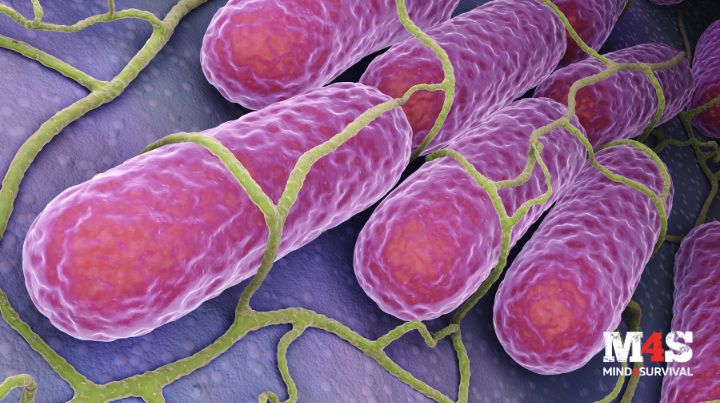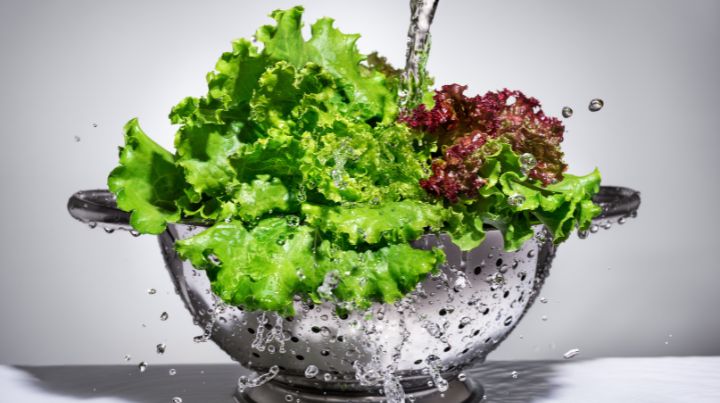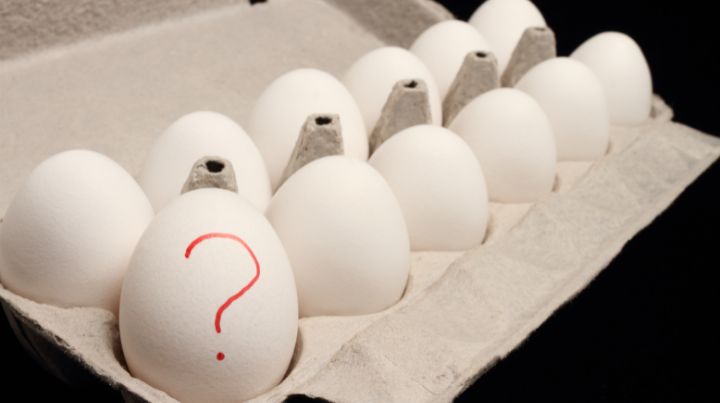Salmonella: What You Need To Know

Salmonella outbreaks keep making the news. The Center for Disease Control (CDC) recently announced recalls for popular charcuterie boards sold at Costco and Sam’s Club stores. If you have recently begun producing your own food, you may be wondering how serious salmonella is and how likely you are to become sick from homegrown and home-processed food.
What Is Salmonella?
A group of bacteria called the salmonella bacteria can cause sickness. People with salmonella infections most often suffer from diarrhea, but in severe cases, people may develop typhoid fever, which must be treated with antibiotics.
I first heard about salmonella as a kid in the 1990s, when the Schwan’s Ice Cream salmonella outbreak hit. I paid attention since I was used to seeing Schwan’s trucks around and have always immediately associated salmonella with eggs.
However, salmonella bacteria can occur anywhere. Items recalled in recent years have included flour, peanut butter, sprouts, wood ear mushrooms, and beef. Pet reptiles such as turtles and snakes often harbor them as well.
Salmonella infections are unpleasant, but rather than obsessing about hidden germs, it is better to pay attention to food storage and preparation. It’s possible to get salmonella from your own garden produce, but fortunately, it’s very easy to prevent.
Fresh Produce
Salmonella bacteria can get onto anything, but some types of food are more prone to contamination than others. Bagged lettuce is one of the most commonly recalled foods. This is because the cut leaves leak water into the bags, becoming a breeding ground for salmonella bacteria. Sprouts are also commonly recalled for similar reasons.
If you’re harvesting lettuce from your garden, you can use a cut-and-come-again method to harvest only what leaves you’re going to eat that day. If it’s the end of the season and you need to harvest the entire head, don’t wash it before putting it in the fridge. Shake the dirt off, put the lettuce head in a plastic bag to avoid getting your fridge dirty, and then wash the leaves immediately before eating.
Washing lettuce or other leafy greens may seem too time-consuming, but it’s worth doing properly. Place the leaves you want to wash into a large bowl, cover them with water, swirl them, and lift them out. Leaves that look pretty clean will still usually leave a fair amount of dirt in the bowl. Repeat this process until the leaves rinse cleanly; I usually have to do this at least three times.
Is Organic Produce Safe?
Washing your produce is important whether you use conventional or organic fertilizer. No one wants to drink chemicals, but many people assume organic is safer.
Organic produce still needs to be washed thoroughly, even if it comes from your own garden.
Think about what organic fertilizer is made of. Read the labels on the fertilizer bags; most of it comes from composted manure. While organic fertilizer is great for the soil, eating it will make you sick.
When harvesting from your own garden, don’t wash produce until immediately before you eat it or process it for long-term storage. Any moist produce sitting in a bag in your fridge creates a perfect environment for bacteria.
Eggs
Eggs are commonly associated with salmonella, but are you more likely to get it from your backyard birds?
Probably not. Salmonella lives in the tracts of most animals and is often found in feces. However, immediately before laying an egg, the chicken’s body produces a thin film of protein called a bloom and covers the egg with it. This bloom seals the egg’s surface, preventing bacteria from entering.
This is why most countries don’t wash or refrigerate their eggs. They are actually safer without being washed since washing removes the protective bloom and makes it easier for bacteria to enter.
Eggs do get soiled once in a while. It seems to me that there are always one or two birds per flock that manage to get poop on their eggs. You should definitely wipe as much dirty material off as possible with a rough paper towel. However, cooking to between 145 and 165ºF destroys salmonella, so I still use these eggs in cooked foods without ill effect.
Collecting eggs regularly is the best way to make sure you have mostly clean eggs. I hope most flock owners check on their birds daily. You should do this to make sure you are collecting eggs in a timely fashion, if for no other reason.
Meat
Chicken from the grocery store is one of the most common sources of salmonella infections. One third of chicken samples tested by Consumer Reports tested positive for salmonella. CR found no major brands that were particularly better or worse than any others, and no difference between organic and conventionally raised birds.
If you’ve eaten chicken from the grocery store, you’ve encountered salmonella. Salmonella is the reason undercooked chicken is considered so dangerous to consume. However, proper cooking kills the bacteria, which is why most of us probably don’t worry about it too much.
Home producers need to worry about it even less. Salmonella live in the intestinal tracts of animals. Once you get really good at processing home-reared animals, you will probably not see the insides of intestinal tracts since you will become adept at cutting around the anus and pulling the intestines out intact.
But no one begins processing animals as an expert, and accidents can happen anytime. I’ve processed thousands of chickens and still managed to give myself a really nasty cut the last time I had a processing day.
However, rinsing the animals out thoroughly and then immediately chilling the meat will prevent the growth of harmful bacteria. When you’re ready to enjoy your home-processed meat, pull it from the freezer only long enough before you use it to thaw properly. This will be two to three days for most cuts of meat. Don’t let it sit in your fridge for extended periods. Cook to the recommended temperature, and you’ll be fine.
Final Thoughts
Salmonella bacteria live everywhere, but they only become dangerous in mismanaged food. If you don’t store produce in a moist environment for days or weeks at a time, if you don’t let thawed meat sit in your fridge, if you cook your food thoroughly, you should not have to worry about it.
I’ve gotten food poisoning multiple times, but that has been at restaurants and on one memorable occasion when I was snacking on asparagus spears, with dirty hands, directly from my garden. After butchering many thousands of chickens and eating countless homegrown eggs, I have never gotten sick. This is due to immediately chilling the meat and keeping my eggs clean.
Salmonella is a real concern, but you shouldn’t live in fear of it. Producing your own food is more work, but it gives you more control. If you pay attention to when you wash your food, how often you collect eggs, and how long meat sits in your fridge, you should not have to worry about it.
Additional Resources:
Don't Miss Out!
Join the thousands of people who rely on Mind4Survival preparedness advice by subscribing to our FREE newsletter.
- Practical preparedness information
- Zero Spam
- < 0.25% of people unsubscribe




Join Mind4Survival!
Stay informed by joining the Mind4Survival! 100% Secure! 0% Spam!
Follow Us!
Affiliate Disclosure
Mind4Survival is a free, reader-supported information resource. If you make a purchase through our link, we may, at no cost to you, receive an affiliate commission.




I got salmonella from that Schwann’s ice cream. A tanker truck has been carrying raw eggs and had not been sanitized before carrying the ice cream product. I laid in bed for twelve hours and was so sick I couldn’t tell my wife to take me to a hospital. I was freezing even thought I was covered in many blankets. Every fifteen to twenty seconds I would have a spasm that was just like when you are about to fall asleep and you jolt awake. But the real treat was hallucinating about scorpions for hour after hour after hour. Finally after about twelve hours of this ride I started to come out of it. But it still took a couple of days to be normal again. You do not want to get this disease.
There are home remedies for these situations! Research oil of oregano – it’s very effective on salmonella and e-coli but also very safe! All the best!